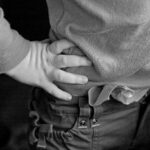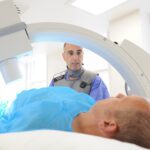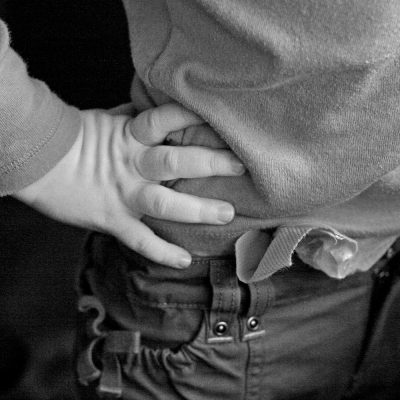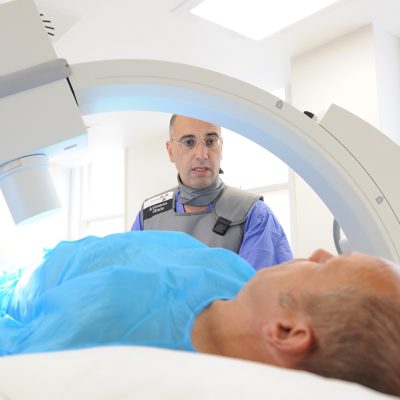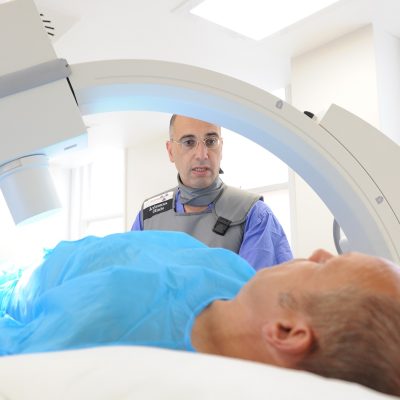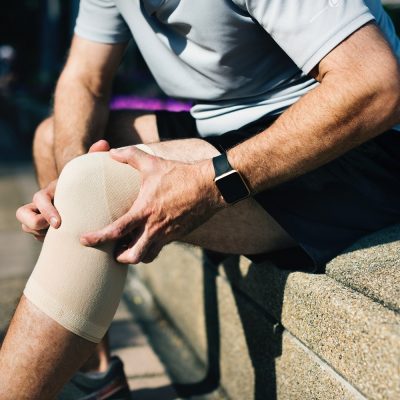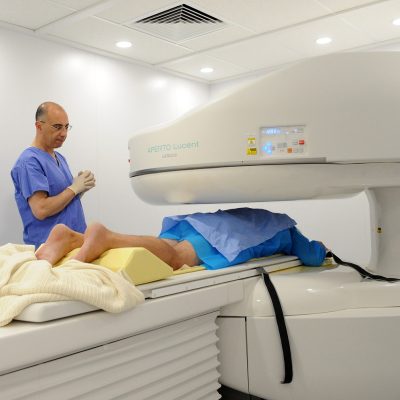Dr Hany Elmadbouh, Lead Consultant at Avicenna Clinic explains joints and soft tissue steroid injections.
What is steroid Injection?
A common cause of a painful joint is synovitis (inflammation of the lining of the joint) or adjacent soft tissue. It can be useful to inject corticosteroid and/or local anaesthetic medication directly into the joint or the soft tissue next to a joint (this is often called a bursa) to reduce the inflammation and provide pain relief.
Why perform a steroid injection?
This procedure is most often used in the shoulder, knee, or hip but may also be helpful in other joints such as the back (facet) and small joints of the hands and feet for pain relief. Sometimes it may be difficult to know what is exactly is causing the joint pain. If the pain is not mainly due to the joint inflammation, the injection may not improve the symptoms. Although, this may be disappointing , it can be helpful information as it means another cause of joint pain needs to be considered.
What are the benefits of steroid injections?
Overall, steroid injections into joints (particularly the shoulder and the knee) appear to provide short to medium term pain relief (3 weeks to 3 months), particularly when combined (in the shoulder) with appropriate physiotherapy. They do not provide long term pain relief and do not alter the course of underlying joint disease (e.g. osteoarthritis).
How Joint injection is performed?
The procedure is usually performed under X-ray or ultrasound guidance to ensure accurate injection into the target area. The exact technique varies depending on the joint to be injected and the consultant radiologist (specialist doctor) who performs the injection. Generally, a preliminary scan will be performed to locate the exact point to be injected, which may be marked on the skin. The skin will then be cleaned with an antiseptic solution to prevent infection. Local anaesthetic is injected into the skin and deeper tissues to reduce the discomfort of the procedure. A needle will then be placed into the joint either at the point marked on your skin or using the ultrasound to see the tip of the needle as it moves into the joint or bursa. When the needle is in the correct place, its position will be confirmed by injecting a small volume of contrast (dye) before giving the steroid injection and withdrawing the needle.
How long does an injection take?
This may vary but an ultrasound guided injection will generally take between 15 and 30 minutes.
Are there any side effects?
There is a very small (1 in 20,000-75,000 injections) risk of infection. There are possible complications of the steroids with aggravation of pain and if the steroid is not injected solely in the joint damaging to the soft tissue including atrophy of the skin and fat under the skin (subcutaneous fat) and rupture of the tendons. Allergic reaction to the injected medication (as with any drug) may also occur.
What happens after the procedure?
The patient will go into the recover area to be monitored until ready to be discharged. As local anaesthetic is used, the patient may initially feel better but the joint pain may also be worse than before the injection and this may last 2-3 days. If the pain becomes much worse in the days following the injection, this may indicate very rarely infection.
What often can I have the injection?
Some patients find that the injection gives them good pain relief for a few months, but then the pain comes back and they wonder about having another injection. Although the exact risk of multiple injections is not known, most doctors would advise against injection more than 3-4 times a year to avoid damage to the joint.
At Avicenna Clinic, we have a range of specialist consultants, operating theatre for surgical procedures and superior in-house imaging facilities –including state-of-the-art MRI, ultrasound and X-ray scanning equipment. We can assess and diagnose all cases of acute and chronic pain quickly and deliver comprehensive treatment plans tailored to you.
To book a consultation or for more information on treating your pain and explore the other available services to help you, contact Avicenna Clinic on 0330 202 0597.

